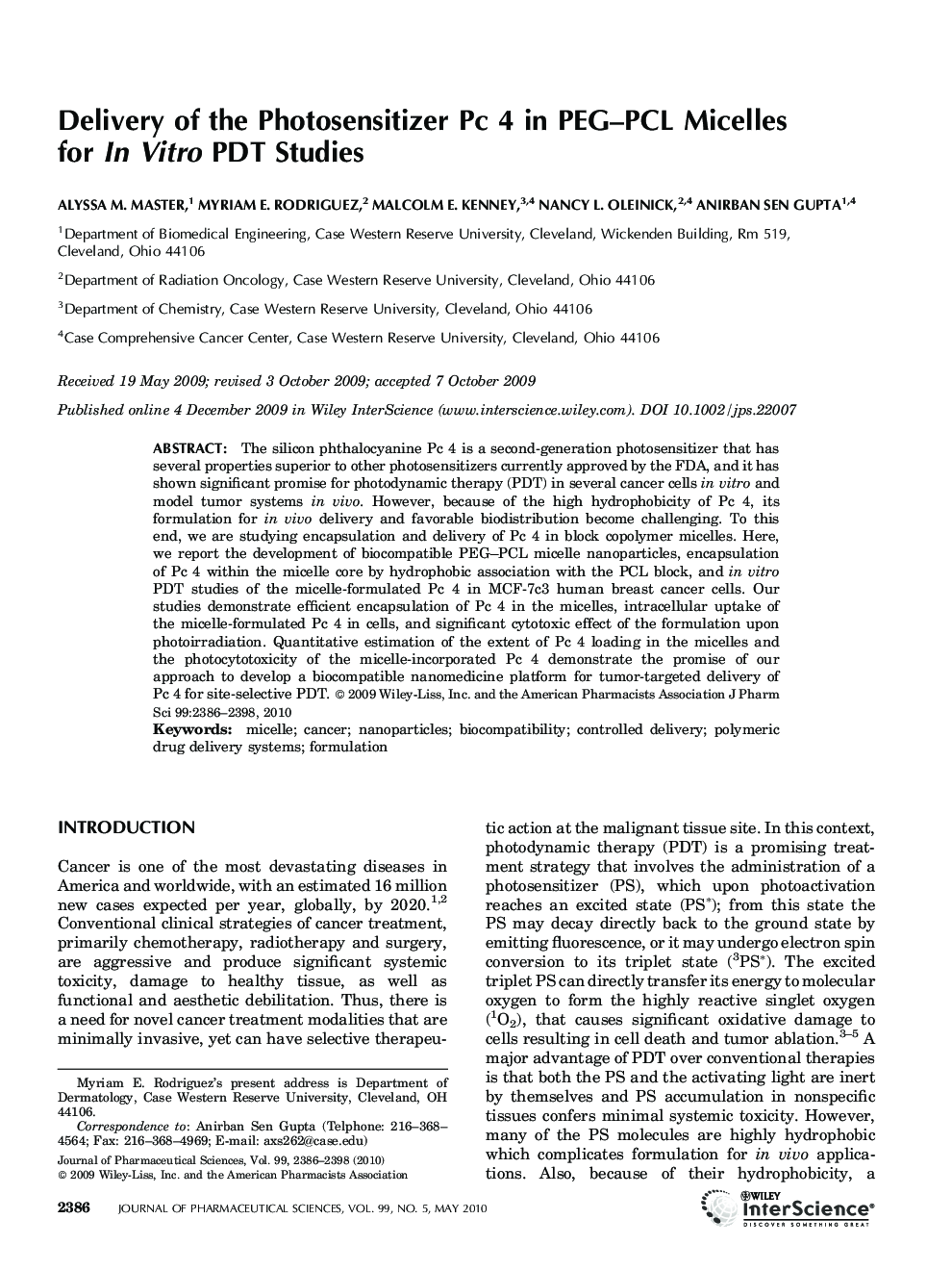| Article ID | Journal | Published Year | Pages | File Type |
|---|---|---|---|---|
| 2485908 | Journal of Pharmaceutical Sciences | 2010 | 13 Pages |
Abstract
The silicon phthalocyanine Pc 4 is a second-generation photosensitizer that has several properties superior to other photosensitizers currently approved by the FDA, and it has shown significant promise for photodynamic therapy (PDT) in several cancer cells in vitro and model tumor systems in vivo. However, because of the high hydrophobicity of Pc 4, its formulation for in vivo delivery and favorable biodistribution become challenging. To this end, we are studying encapsulation and delivery of Pc 4 in block copolymer micelles. Here, we report the development of biocompatible PEG-PCL micelle nanoparticles, encapsulation of Pc 4 within the micelle core by hydrophobic association with the PCL block, and in vitro PDT studies of the micelle-formulated Pc 4 in MCF-7c3 human breast cancer cells. Our studies demonstrate efficient encapsulation of Pc 4 in the micelles, intracellular uptake of the micelle-formulated Pc 4 in cells, and significant cytotoxic effect of the formulation upon photoirradiation. Quantitative estimation of the extent of Pc 4 loading in the micelles and the photocytotoxicity of the micelle-incorporated Pc 4 demonstrate the promise of our approach to develop a biocompatible nanomedicine platform for tumor-targeted delivery of Pc 4 for site-selective PDT. © 2009 Wiley-Liss, Inc. and the American Pharmacists Association J Pharm Sci 99: 2386-2398, 2010
Keywords
Related Topics
Health Sciences
Pharmacology, Toxicology and Pharmaceutical Science
Drug Discovery
Authors
Alyssa M. Master, Myriam E. Rodriguez, Malcolm E. Kenney, Nancy L. Oleinick, Anirban Sen Gupta,
